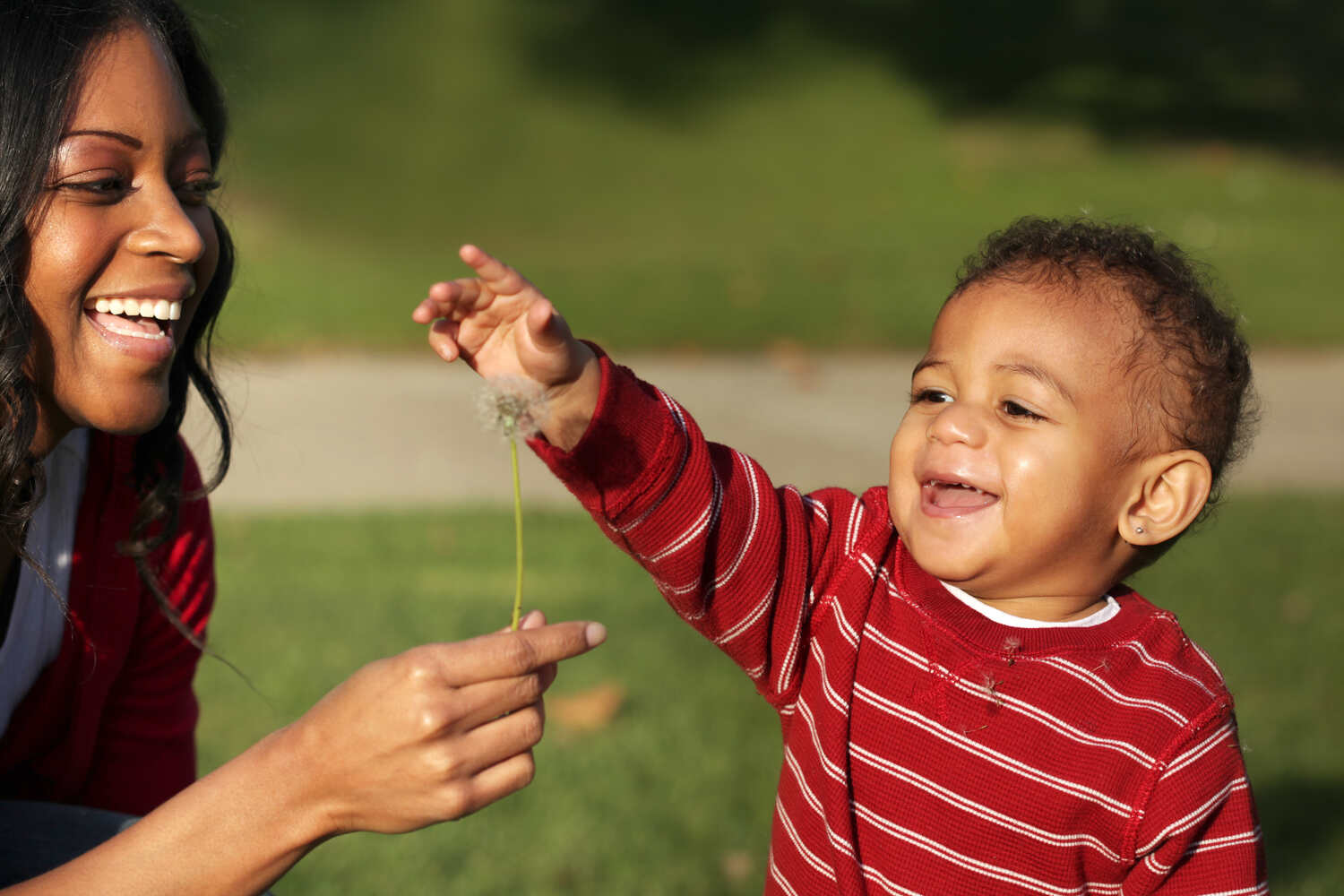
Your little bundle of energy is 16 months old and is loving all the attention. They will try many tricks to get all the attention. They are testing their abilities and want you to pay close attention to every second of their day. What other surprising 16-month-old toddler milestones should you anticipate this month?
They think they are the most important person around everyone and rightly so. It is quite normal for toddlers to expect all the attention and do things to get your attention when you are busy. Sometimes it can be quite frustrating too. Don’t worry, it is just a phase and you will cross this too with flying colors. Let’s take a loot at the toddler milestones your little one may hit this month.
In This Article
- Developmental Milestones for 16-Month-Old Toddler
- Growth Chart For a 16-Month-Old Toddler
- Tips to Boost Your 16-Month-Old’s Development
- Health And Care of Your Toddler
- What Your Toddler’s Typical Day Looks Like?
- Some Useful Tips For Your Toddler
- FAQ’s
Developmental Milestones For 16–Month-Old Toddler
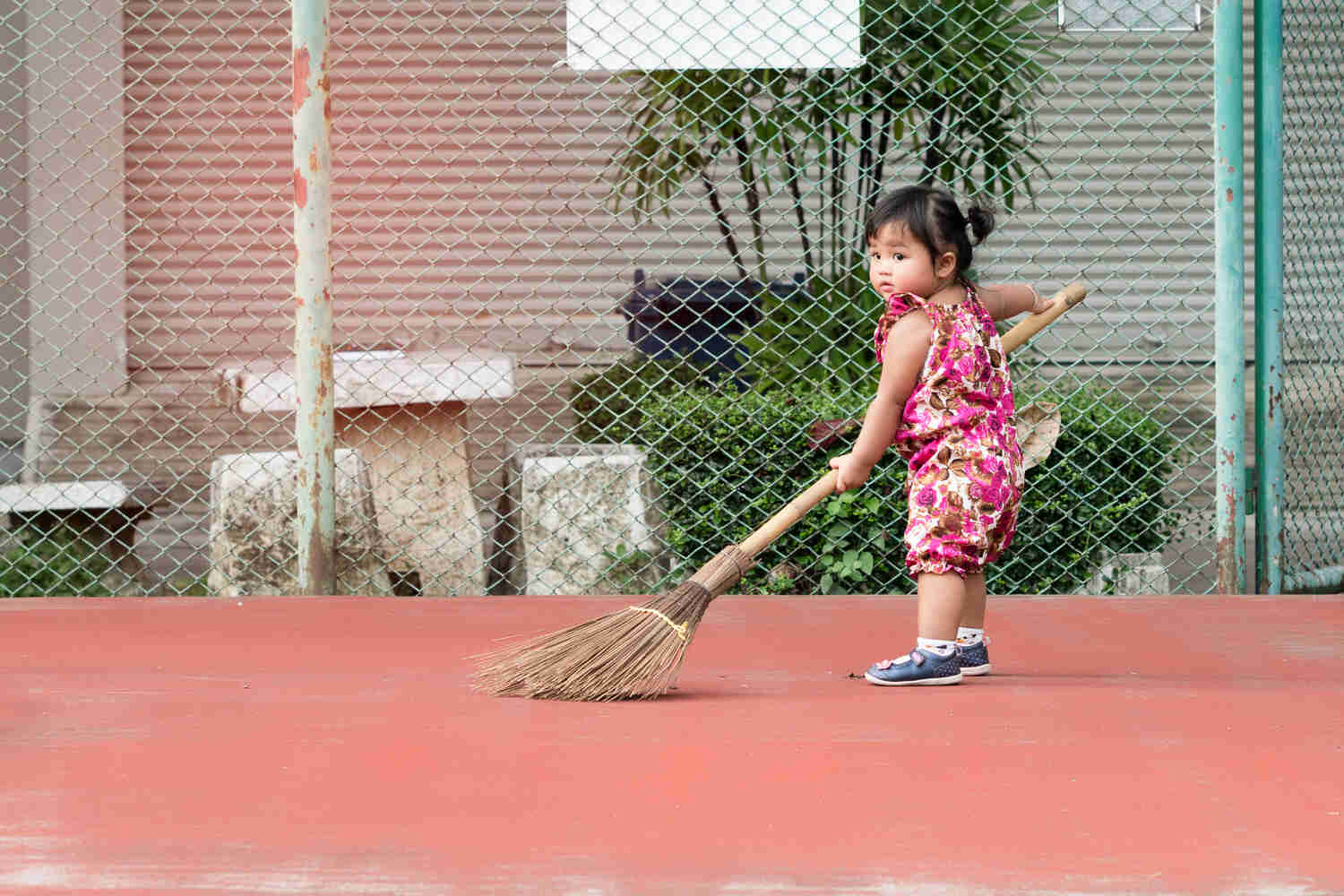
Some developmental milestones your toddler might achieve this month are-
Teething
- Your toddler’s canines might start showing through those tender gums (1)
- Teething can be painful for some toddlers, throwing them off their regular schedule and behavior
Copy/Repeat
- Your toddler is gaining more control over their vocabulary
- They will try to repeat words they hear often. Some may even start repeating sentences. Be careful about what you tell them or speak in front of them
- They will also start following you around like a shadow
Help You
- Your toddler will want to help you. This is their own way of doing adult things.
- They will show interest in sweeping with a broom, stacking vessels, or dusting with a cloth
Recognition
- Toddlers at his stage can start recognizing and responding to their names
- Ensure you use their given name more frequently. Using too many names at a time might confuse them
- They can point to daily objects when you name them.
Explore
- Toddlers are curious and start exploring their surroundings
- Your toddler might bring you weird things or even insects they find
Growth Chart For a 16-Month-Old Toddler
An average 16-month-old height and weight will be as follows-
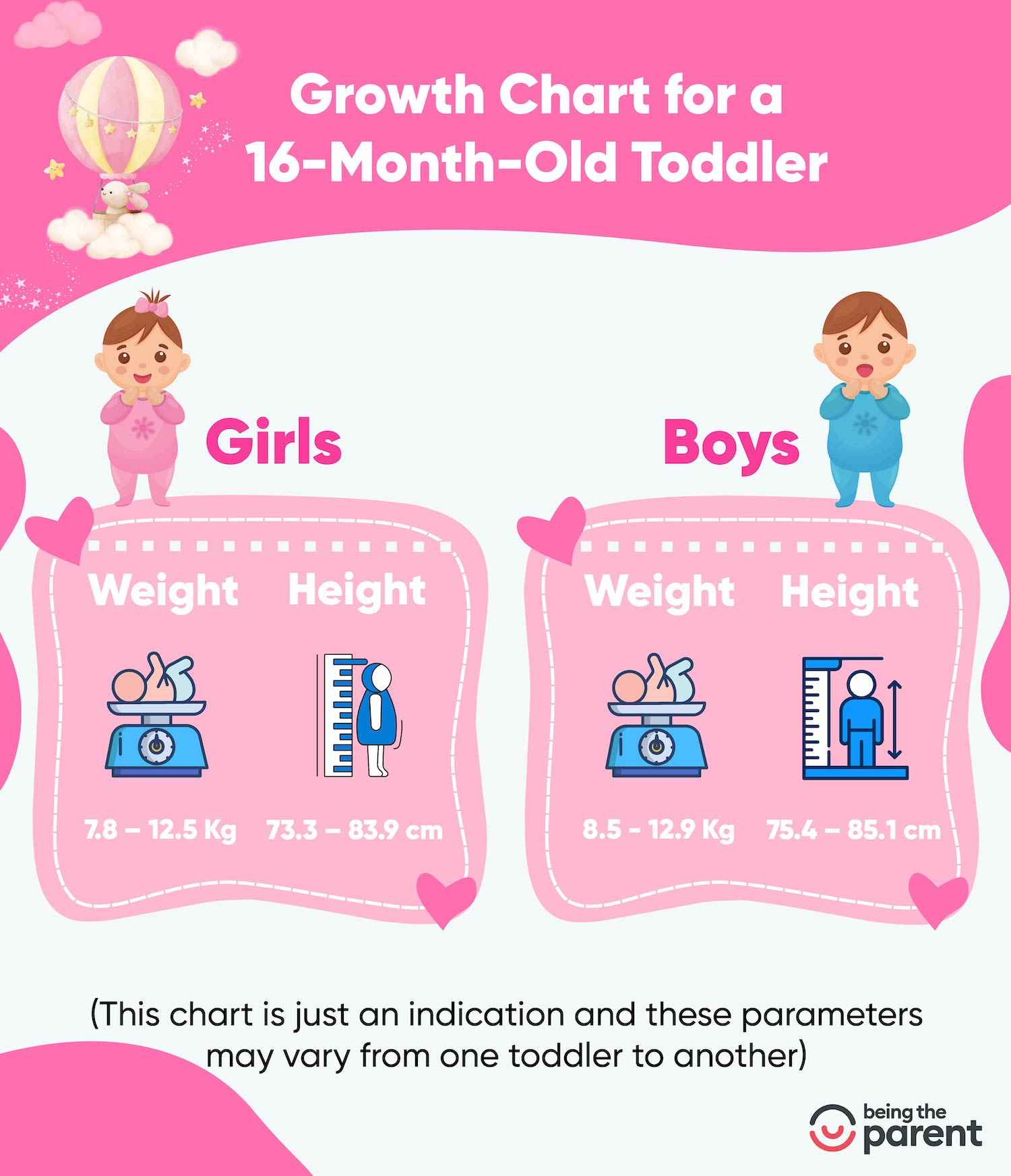
Tips to Boost Your 16-Month-Old’s Development
Here are some tips to help boost your 16-month-old’s development-
1. Encourage Social Interactions
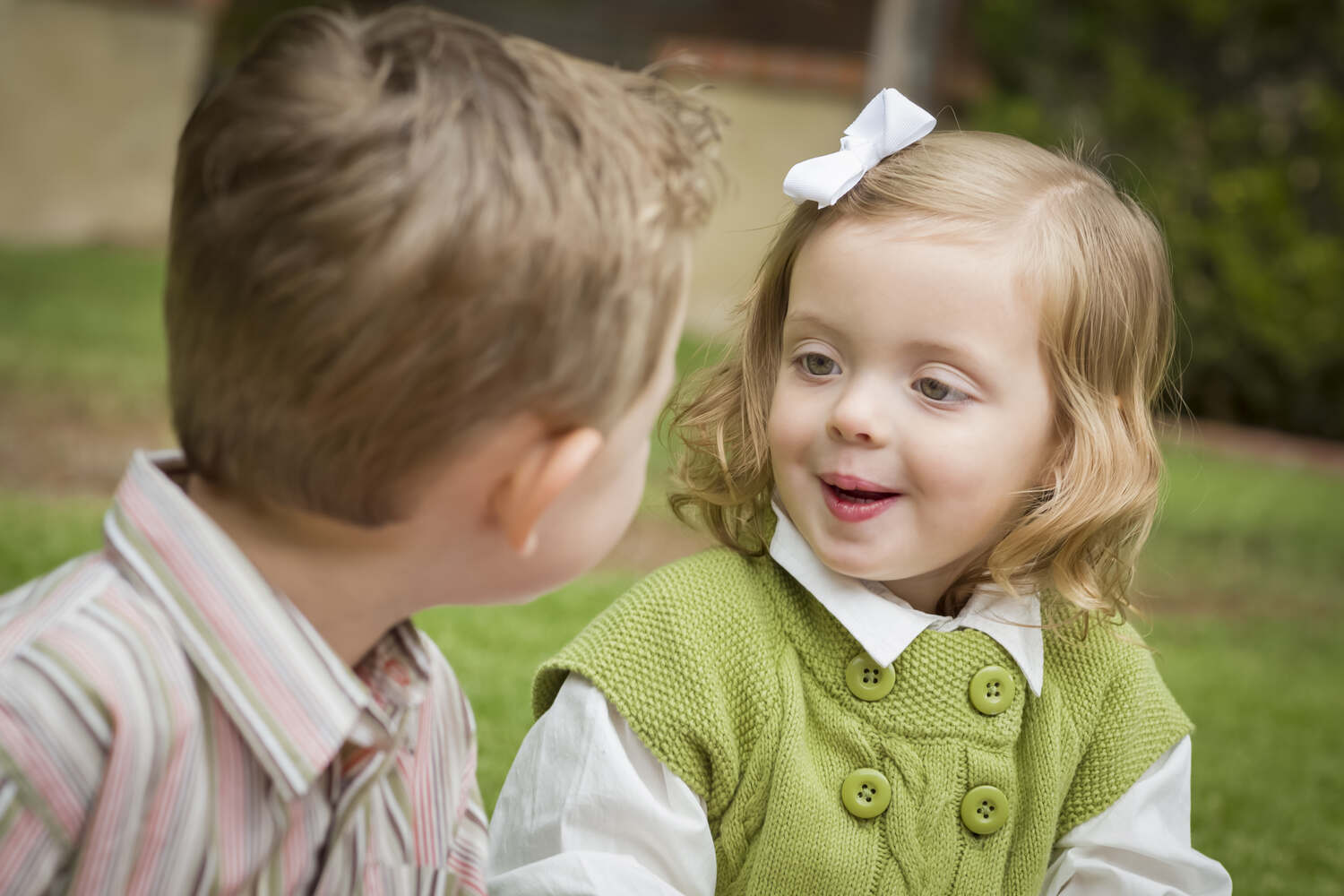
As your toddler develops separation anxiety, encourage them to spend time with other kids and adults. Knowing that you will be there even after they go out or come back after spending time with others, can be very reassuring and ease their anxiety.
2. Maintain Boundaries
Setting physical and behavioral boundaries can prevent them from hitting others, throwing things, or hurting their peers. You can hold their hands to stop them from hitting and keep reminding them it is not okay to hit.
3. Use Music

Toddlers love music at this stage. You can play music to teach them rhymes or to even calm them down. Music also enhances their learning abilities (2).
4. Stick to Routines
Following a routine for sleep, meal time, playtime, etc. can help toddlers develop and adapt well to changes.
5. Respect Emotions
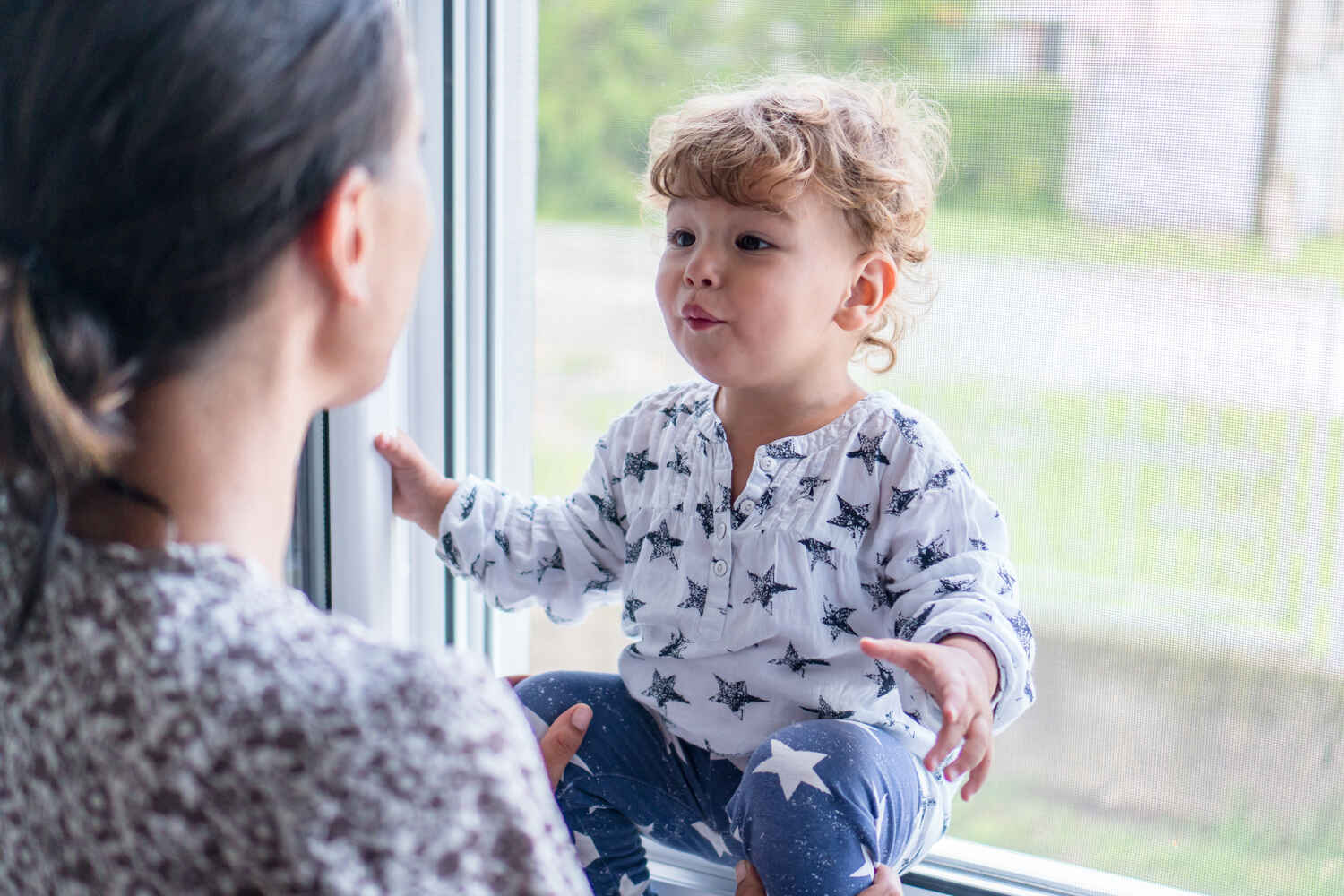
Your toddler can understand joy, disappointment, and other emotions. Saying no to extra playtime might upset them. Rather than reacting harshly or forcing them, acknowledge their feelings and be patient.
6. Food Presentation
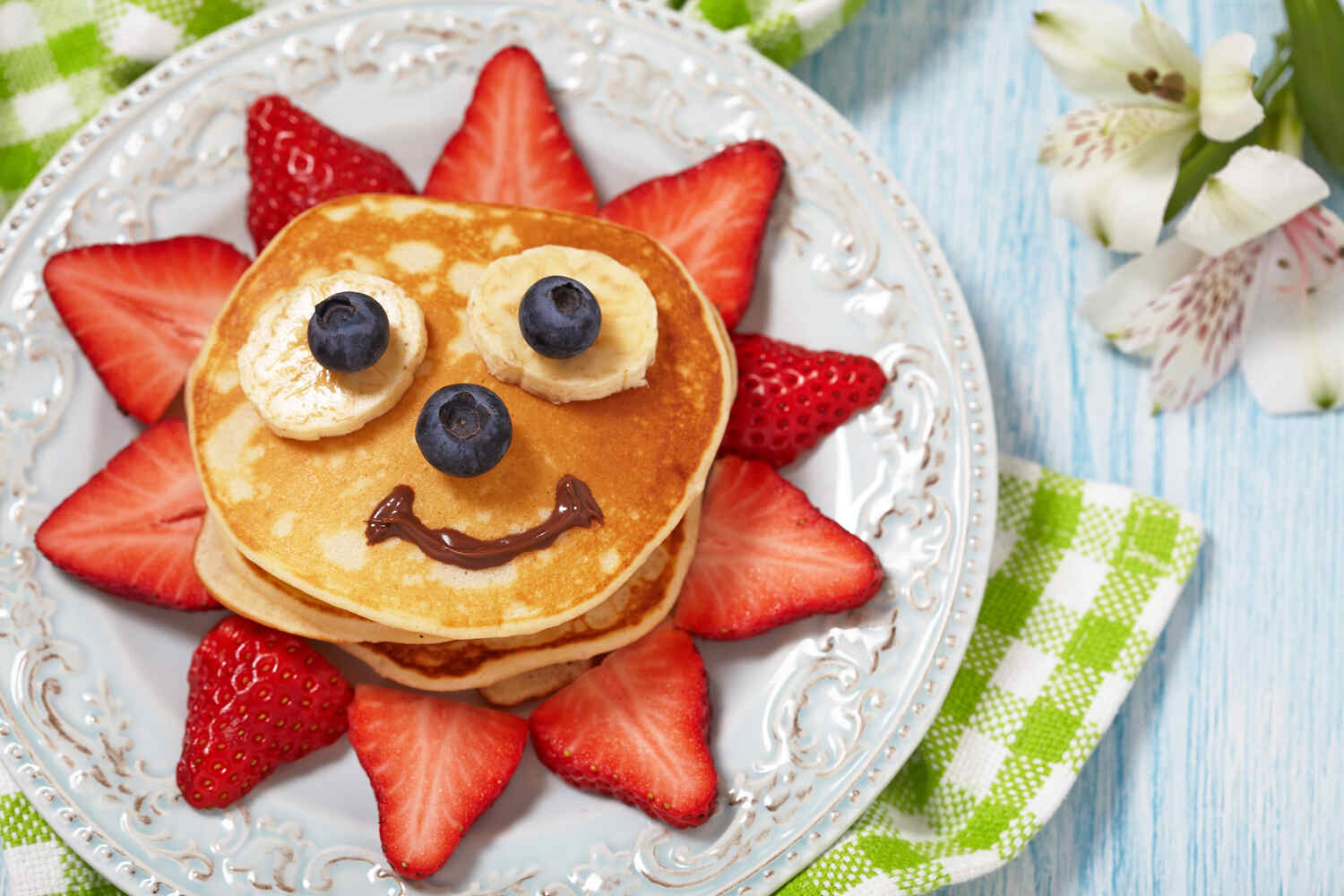
Offer varieties and present the foods in interesting ways. When the food looks appealing, toddlers tend to reciprocate better. You can try making funny faces or their favorite characters with the food items. Build a story around the dishes to encourage toddlers to try new foods and eat what you serve them.
7. Reduce Screen Time
Try to avoid or reduce screen time as it can interfere with your toddler’s speech and cognitive development.
8. Inexpensive Toys
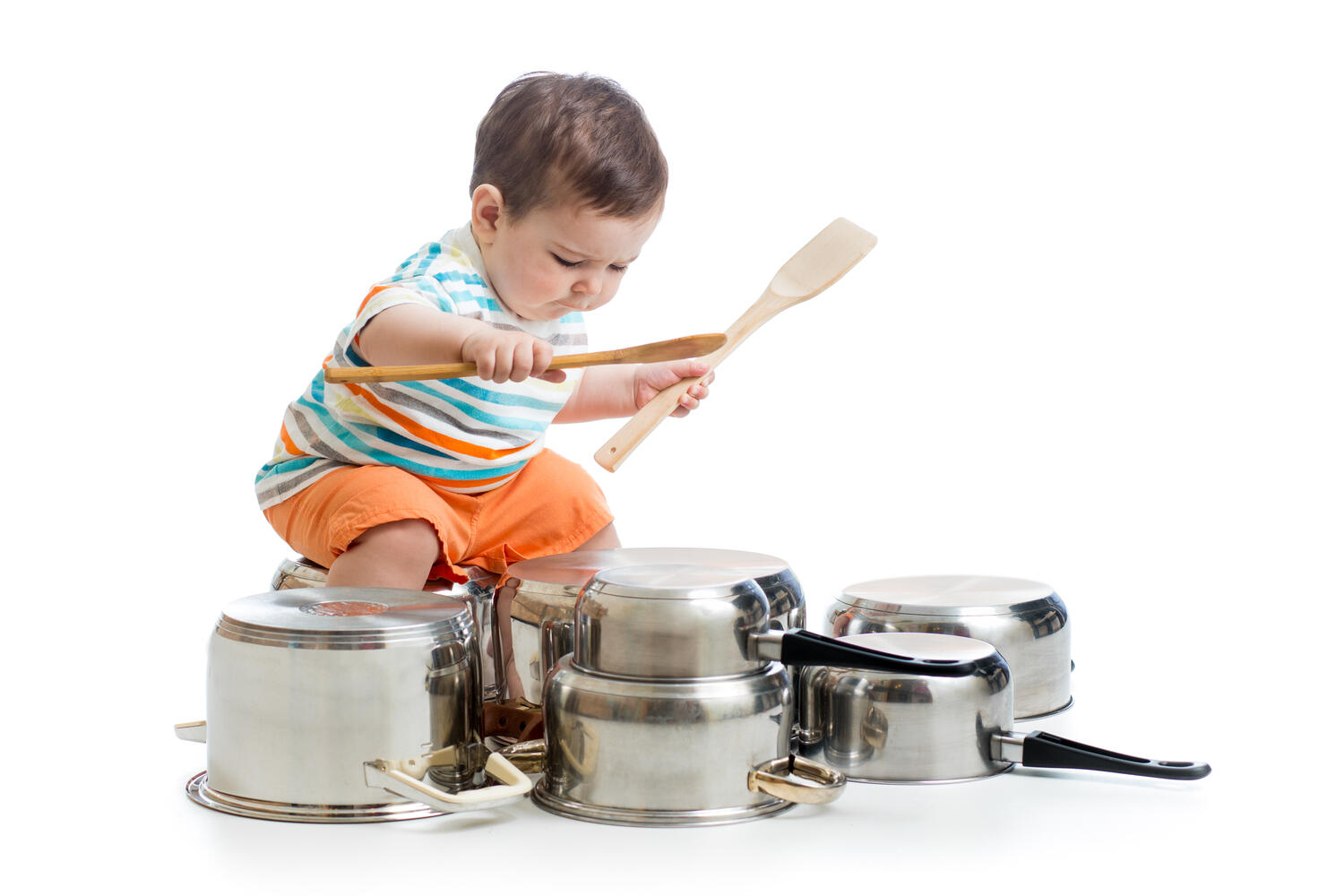
Let your toddler play with common household items or just waste package materials. Giving them the freedom to explore their strength and act out their ideas aids better development than expensive toys.
Health And Care of Your Toddler
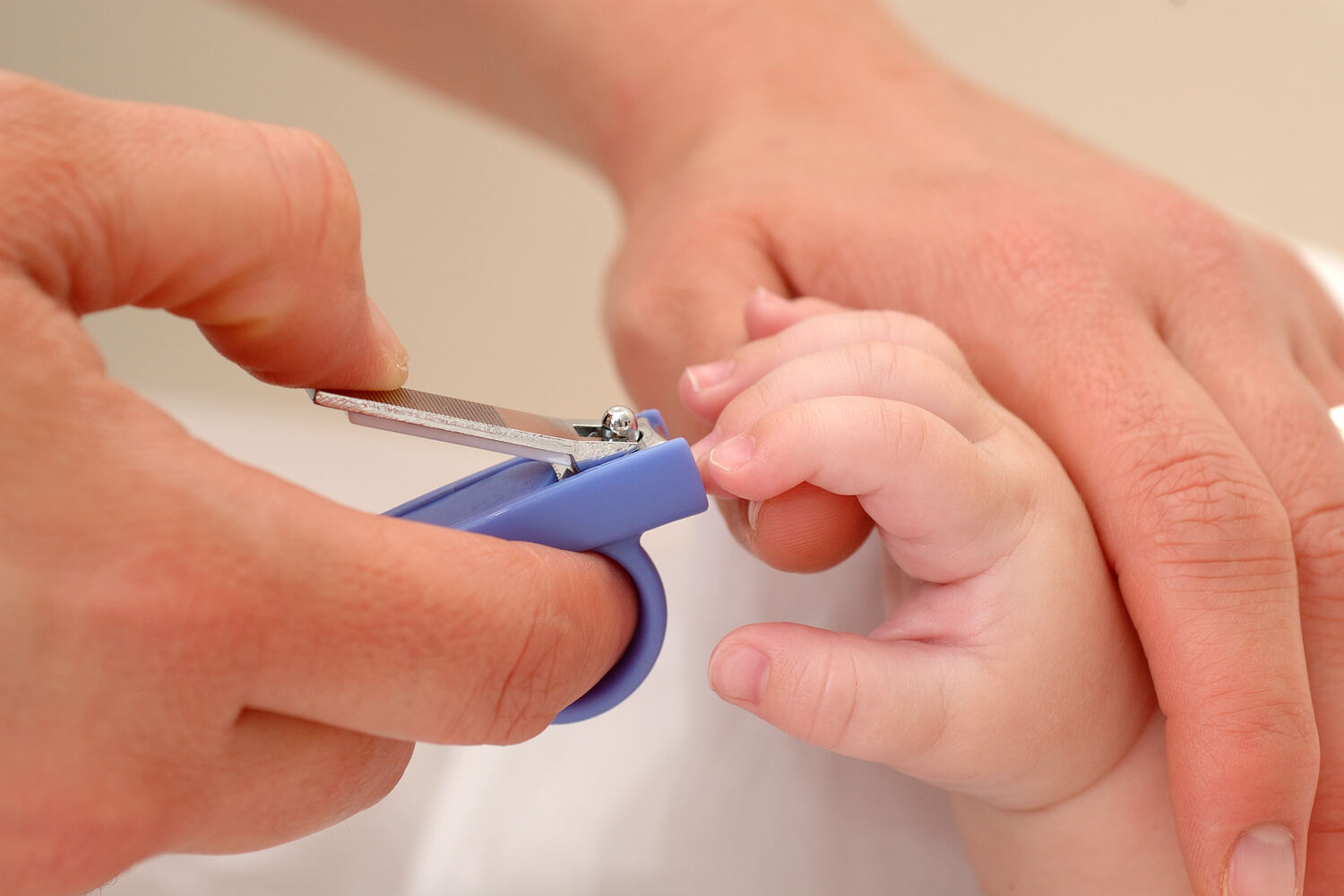
As your toddler grows and masters new skills, you can take care of their health in the following ways-
- If your toddler has a cold or a stuffy nose, encourage them to inhale steam to ease the block. You can also use a humidifier in their room if they have frequent coughs or breathing difficulties
- Encourage your toddler to drink plenty of fluids and stay hydrated. Opt for fresh fruit juices and plain water instead of sugary drinks or packaged juices
- Toddlers can get a lot of dirt on their faces and even into their eyes. Be very gentle when you wash their face and eyes
- If your toddler is spending a lot of time out under the harsh sun, use a child-safe sunscreen. Look out for reactions to the sunscreen and discontinue if not suitable
- Clean your toddlers’ nails and cut or file them routinely. As they get more active and curious, they are bound to trap a lot of dirt and other substances under their nails
- Continue to keep a close watch on them as they climb stairs faster and become more curious to explore their surroundings
What Your Toddler’s Typical Day Looks Like?
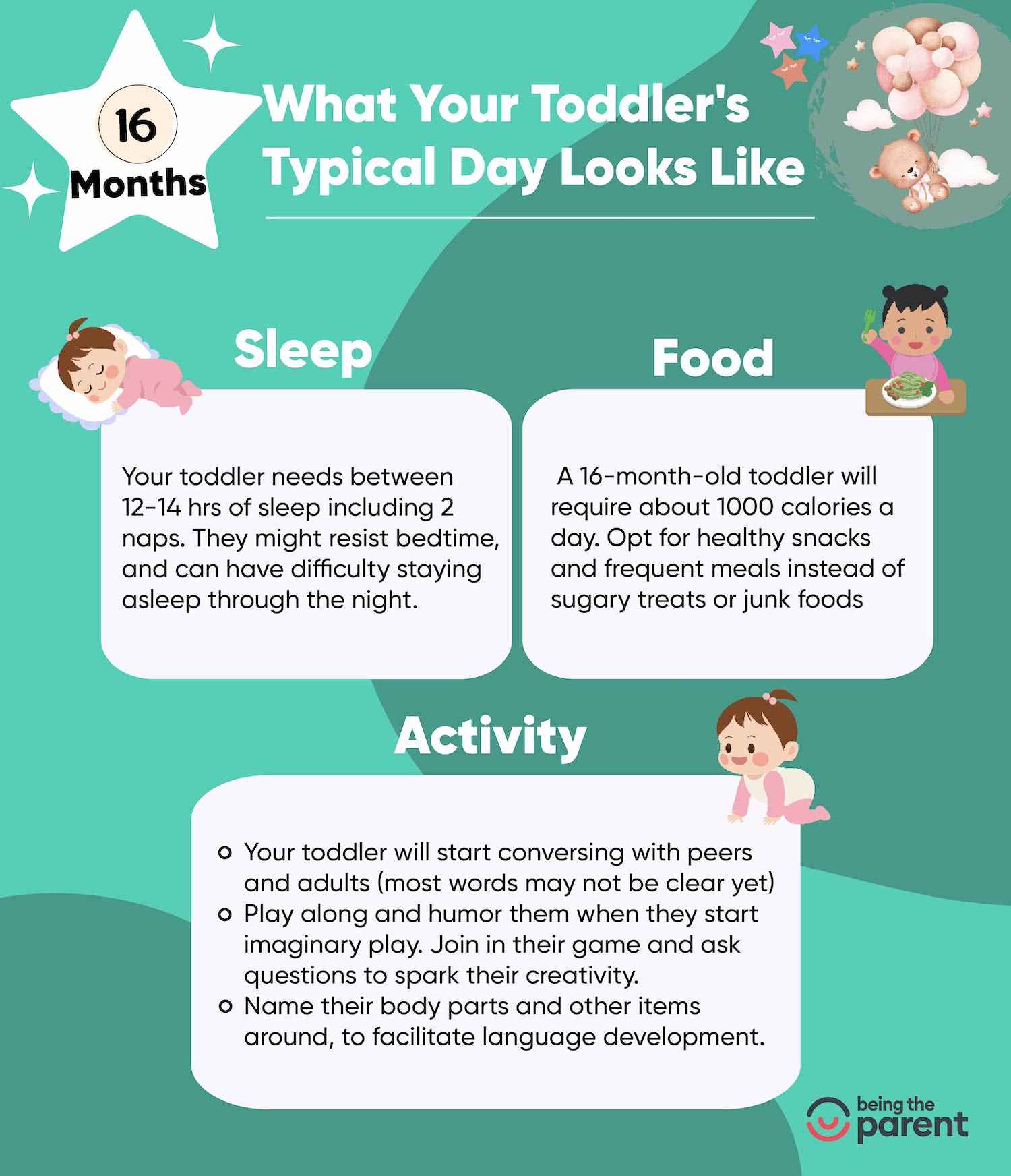
Some Useful Tips For Your Toddler
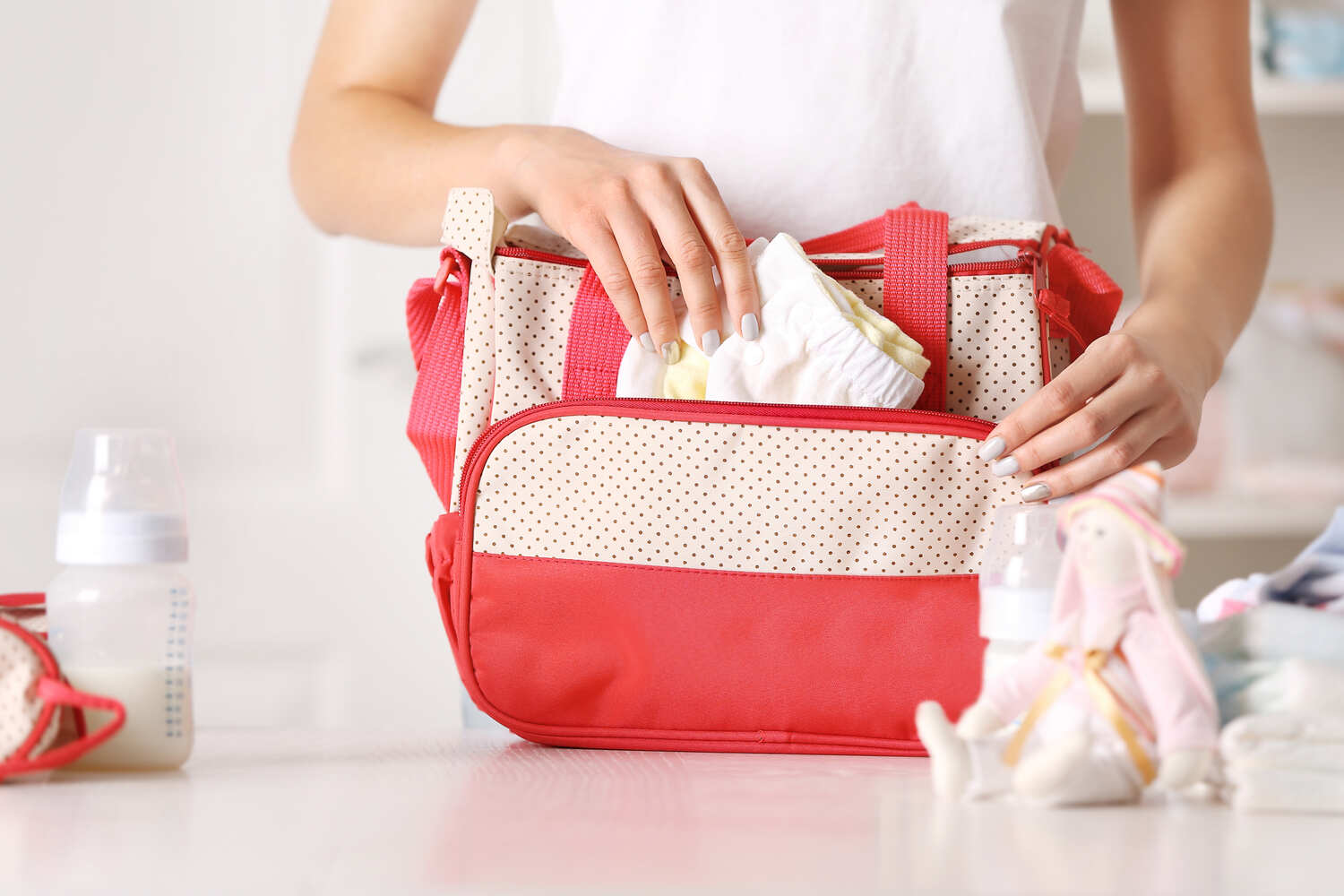
Here are some useful quick tips to help your toddler develop well-
- Be patient and gentle with your toddler when they are having a meltdown (in public or at home)
- Letting them go through their emotions can help calm them faster than trying to suppress their behavior with threats and warnings
- Always carry an extra set of clothes when you step out as toddlers can spill over themselves
- Refrain from comparing your toddler with their peers. It will not only stress you but will have a negative impact on their confidence and emotional development too
- When your toddler resists sleep or bedtime, come up with interesting routines or new stories to make bedtime more fun
At 16 months, your toddler is becoming more physically active and vocal. They are able to think for themselves and can rush to do things. With a lot of patience and some firm guidance from your side, your toddler is bound to flourish beautifully. Just give them the time and space for all the development. Different tots may achieve toddler milestones at different paces. Do not worry if your toddler is not hitting milestones at a stipulated time.
FAQ’s
1. What Can a 16-Month-Old do?
An average 16-month-old should be able to pick things off the floor, pick a ball and throw it, follow simple instructions, and say several single words. They should also try pulling apart toys and putting them back together.
2. How Many Naps Should a 16-Month-Old Take?
Toddlers need about 14 hours of sleep a day. Some may take just one nap and some may need two. Each toddler is different and the number of naps is not a concern as long as they get enough sleep. If your toddler seems tired despite the naps and a full night’s sleep, they may need more sleep.
3. How do You Deal With Your 16-Month-Old’s Tantrums?
It can be quite frustrating and the tantrums can sometimes be impossible. Tantrums happen when your toddler feels dysregulated. Losing your temper or shouting at them will only make it worse for them. Just stay calm and firm. When you handle them with patience, they will slowly calm down and move on.
4. What Causes Aggressive Behavior in a 16-Month-Old?
A 16-month-old toddler is at a stage where they want to do a lot of things on their own but are either unable to or are not “allowed” to. Every time you stop them to protect them, they will perceive it as control. They get aggressive when they feel they are not in charge.
5. What Should my 16-Month-Old be Saying?
Your 16-month-old must be saying a number of single words like give, take, come, go, and other words you use with them regularly. Some toddlers can be more advanced and use two or more words together. They may take time to get the words out but will convey what they want to.
6. Is Babbling Normal at 16 Months?
If your toddler is able to say a lot of single words along with all the babbling, there is nothing to worry about. However, if they are only babbling and show no signs of forming words, you should consult your pediatrician. They may refer you to a speech therapist if they feel the toddler needs help.
7. Why Doesn’t my 16-Month-Old Say Mama?
It could be just a pronunciation issue. Check with a speech therapist to assess your toddler’s communication and speech skills. If there is an issue, they will give you professional guidance to help your toddler.
8. How do I Encourage my 16-Month-Old to Talk?
The only way to encourage a toddler to talk is by talking to them. Excess screen time reduces the need for and the opportunity to “converse”. Reduce screen time and encourage them to say new words. Play naming or identifying games to help them learn words. Let them play with other toddlers their age, it will encourage them to talk.
References
- Teeth development in children – [https://www.betterhealth.vic.gov.au/health/conditionsandtreatments/teeth-development-in-children]
- Music Interventions and Child Development: A Critical Review and Further Directions – [https://www.ncbi.nlm.nih.gov/pmc/articles/PMC5626863/]
